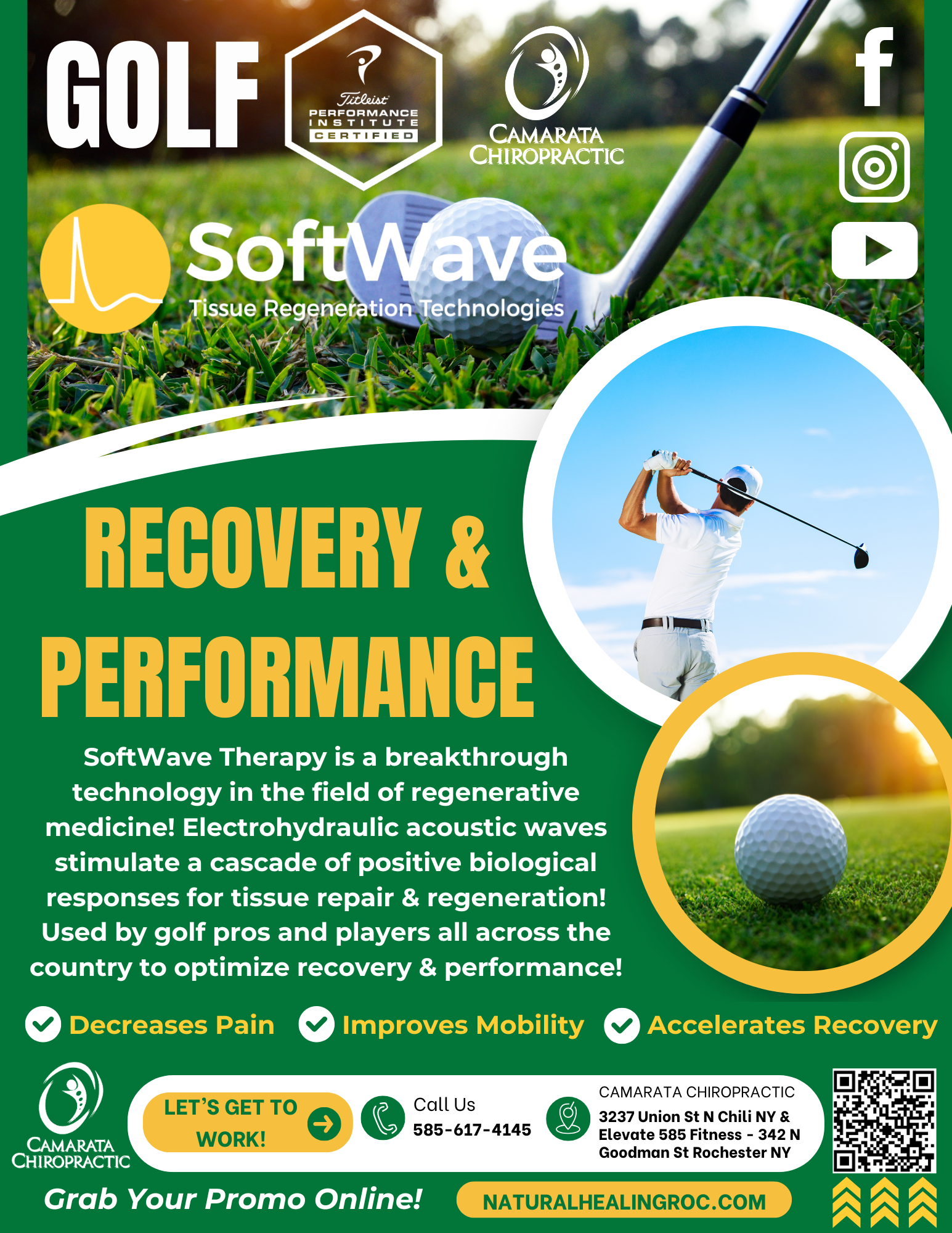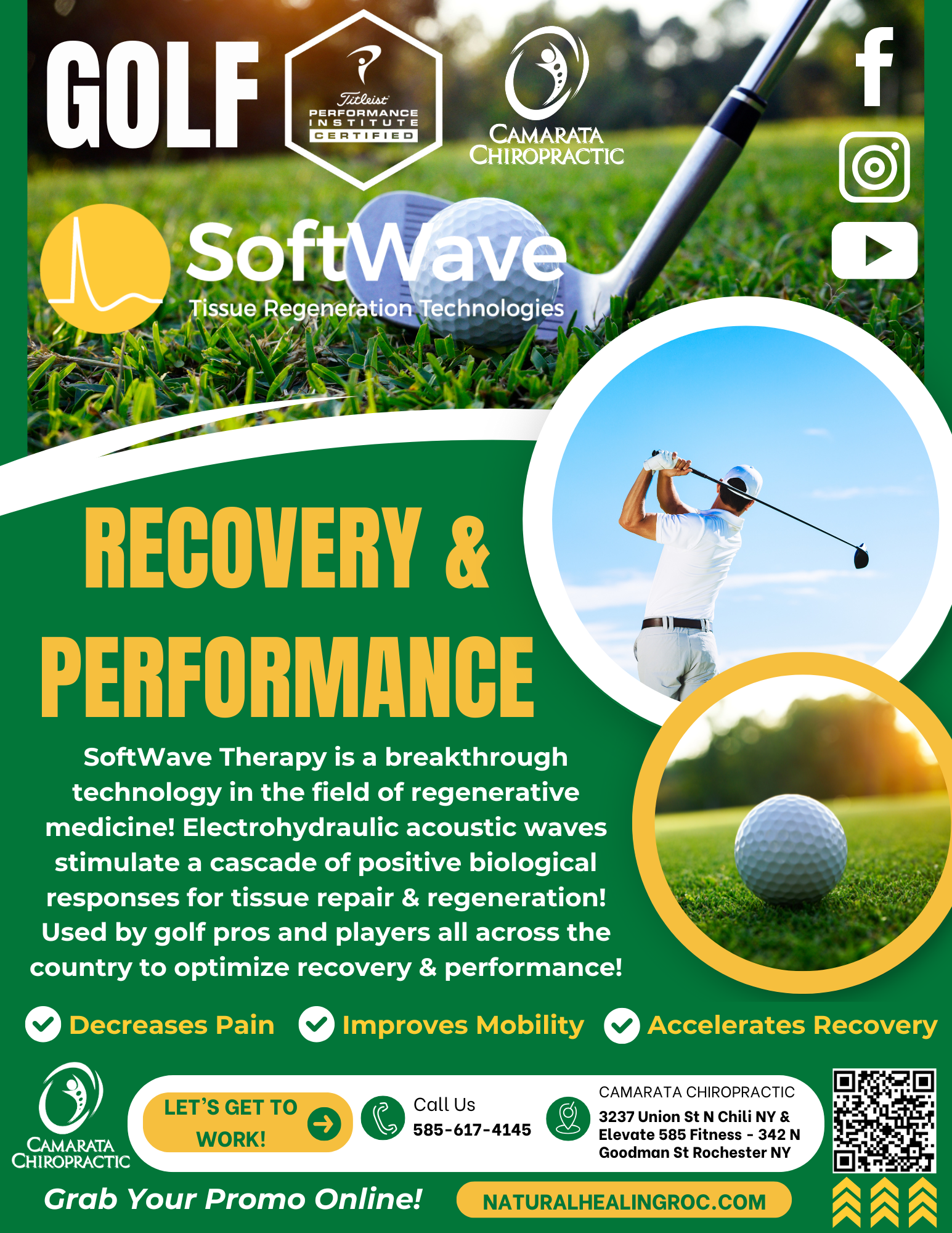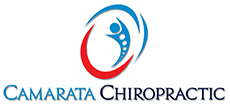Is Pain Hurting Your Golf Game? How Rochester Golfers Are Swinging Pain-Free with SoftWave Therapy!

The Hidden Toll Golf Takes on Your Body
Golf may be a low-impact sport, but the repeated swings, rotational forces, and prolonged time on your feet can take a serious toll on your body. Many golfers, whether amateur or professional, experience persistent aches, stiffness, and injuries that can disrupt their game and limit their performance on the course.
If you’re dealing with chronic pain, joint stiffness, or nagging injuries that make swinging the club uncomfortable, you’re not alone. Many golfers in the Rochester, NY region are discovering SoftWave Tissue Regeneration Therapy as a game-changing solution for pain relief, faster recovery, and improved mobility—without surgery or injections.
Common Golf Injuries That Can Impact Your Game
Lower Back Pain & Sciatica
- The rotational force of a golf swing places significant stress on the lower back, which can lead to disc irritation, facet joint dysfunction, or sciatic nerve pain.
- Pain can range from mild stiffness to sharp, shooting pain down the leg.
Shoulder Pain & Rotator Cuff Injuries
- Repeated swinging, especially with poor mechanics or limited mobility, can cause shoulder impingement, rotator cuff tendinitis, and labral tears.
- Golfers with shoulder pain often lose power in their swing and struggle with overhead movements.
Golfer’s Elbow & Wrist Pain
- Excessive gripping and repeated impact with the club can cause medial epicondylitis (Golfer’s Elbow) or tendon irritation in the wrist and forearm.
- Wrist pain can make chipping, putting, and driving painful and less controlled.
Knee Pain & Arthritis
- The knee endures stress and torque during the golf swing, especially in the lead leg.
- Conditions like meniscus tears, patellar tendinitis, and arthritis can limit mobility and cause pain with every step on the course.
Hip Pain & Limited Rotation
- The hips generate power and stability in a golfer’s swing but can become painful due to tightness, arthritis, or labral tears.
- Limited hip mobility can lead to compensations in the lower back and knees, increasing injury risk.
What is SoftWave Therapy and How Does It Help Golfers?
SoftWave Tissue Regeneration Therapy is a non-invasive regenerative treatment that uses electrohydraulic supersonic acoustic waves to stimulate healing at the cellular level.
Instead of masking pain like medications or injections, SoftWave activates natural repair mechanisms in the body to promote true tissue healing and long-lasting relief.
The Science Behind SoftWave for Golfers
- Increases Blood Flow and Circulation (Angiogenesis) – Promotes the formation of new blood vessels, improving oxygen and nutrient supply to damaged tissues.
- Flushing Out Trapped Inflammation – Clears chronic inflammation and cellular waste that cause joint stiffness and pain.
- Activates and Migrates Stem Cells – Triggers resident stem cells to migrate to injured joints, tendons, and ligaments to facilitate repair and regeneration.
- Breaks Down Scar Tissue & Adhesions – Restores mobility and flexibility, allowing golfers to swing more smoothly with less restriction.
- Reduces Nerve Irritation – Helps with pinched nerves, sciatica, and nerve-related pain affecting posture and stability during a swing.
How SoftWave Therapy Can Improve Your Golf Performance
Golfers need mobility, strength, and endurance to play their best. SoftWave Therapy provides key benefits that help keep golfers at peak performance:
- Increased Range of Motion – Freer, more controlled swings with less restriction in the shoulders, hips, and spine.
- Reduced Pain & Stiffness – Improved joint flexibility and less discomfort after a round.
- Faster Recovery Between Rounds – Reduces muscle soreness, joint inflammation, and post-round fatigue.
- Stronger, More Resilient Joints & Soft Tissues – SoftWave fortifies muscles, tendons, and ligaments, helping golfers generate more clubhead speed and power.
- Long-Term Injury Prevention – SoftWave Therapy keeps tissues strong and mobile, reducing the risk of chronic injuries that can sideline your game.
How Many SoftWave Therapy Sessions Are Needed?
The number of SoftWave Therapy sessions depends on your condition and goals. However, most golfers experience:
- Significant relief after the first 1-3 visits.
- Best results after 6-8 sessions.
- Continued improvement for months after treatment due to ongoing stem cell activation.
- Many golfers opt for routine maintenance sessions to keep their body feeling its best throughout the season.
Why Rochester Golfers Are Choosing SoftWave Therapy Over Traditional Treatments
Unlike traditional injections, painkillers, and physical therapy alone, SoftWave Therapy is a true regenerative solution that promotes long-term healing.
- No downtime, no surgery – Get back on the course without missing rounds.
- No injections or medications – Avoid the risks of steroids, NSAIDs, or prescription drugs.
- Used by Professional Athletes – Trusted in PGA, MLB, NFL, NBA, NHL, and collegiate sports.
Get Back to Playing Pain-Free with SoftWave Therapy in Rochester!
At Camarata Chiropractic & Wellness, we help golfers in the Rochester, NY region stay pain-free, mobile, and strong with SoftWave Therapy, chiropractic care, and sports recovery treatments. If pain is limiting your swing or mobility, we can help!
Camarata Chiropractic & Wellness - North Chili Location: 3237 Union St North Chili NY 14514
Elevate 585 Fitness & Performance Center - Rochester Location: 342 N Goodman St
Call us today at 585-617-4145
Request an appointment online: Click here for a Softwave Therapy Apppointment Request!
Learn more: www.naturalhealingroc.com
Don’t let pain keep you from the game you love—experience SoftWave Therapy and play your best round yet!

